
Disclosure regarding our editorial content standards.
Preparing for a baby is an exciting time for many new parents. From picking out a name and decorating the nursery to shopping for baby clothes, welcoming a new member of your family is a special occasion.
However, these small bundles of joy can often carry a hefty price tag. According to the USDA, the cost of raising a child through the age of 17 can cost a family over $233,000, depending on household income and location. This may make you wonder—am I financially ready for a baby?
From expenses like diapers and medical bills to fancy strollers and formula, the fees a baby can incur just in the beginning of their life are high. These expenses, necessary as some of them may be, could have a negative impact on your credit score if you haven’t prepared your finances accordingly.
Whether you’re a new parent who’s adopting, planning for a pregnancy with a partner or entering parenthood solo, read on for our tips on how to see if you’re financially prepared for a baby. Be sure to check out our budgeting printables to help you stay on track and keep an eye on your expenses!
Are you financially ready for a baby?
Whether you’ve always wanted to be a parent or this is a relatively new concept for you, trying to plan for a baby can be daunting. Figuring out if you’re financially ready to start your family can seem overwhelming at first, but all you need to do is answer a few questions to take your financial temperature:
- How much debt do you have?
- How long will it take to pay debt off?
- What kind of debt do you have—credit cards, student loans, mortgage or a mix?
- Can you afford your lifestyle, or is it subsidized with credit cards?
- How much is in your savings account?
- Do you have an emergency fund?
- How much do you contribute to your savings account and FSA/HSA each paycheck?
- Do you have stable and comfortable employment?
- Do you have enough income to support you and a baby?
- Is your lifestyle comfortable, or are you living paycheck-to-paycheck?
- Are you adopting or planning to get pregnant?
- Are you parenting with a partner, or will you be a single parent? Will you have family nearby to help?
It’s important to evaluate your finances before having a baby. While money won’t raise your child, it’s important to see how financially comfortable you are.
If you liked the answers to the questions above, then it may be time to start planning your family. If you’re still not sure, you may want to pursue more financial freedom before having a baby.
Pre-baby planning
Just like you plan before you go forward with having a baby, it’s important to plan ahead for your finances. Before you’ve even gotten a positive pregnancy test or an approved adoption application, there are several steps you can take to have a comfortable financial plan for your baby.
1. Understand your health insurance
Health insurance is important to have at any time in your life, but especially when planning to have a baby. Considering all the medical care you and your child will need—from checkups to actually giving birth—you should carefully examine your policy to see what coverage you and your baby will have. It’s important to understand your healthcare plan whether you’re adopting or planning a pregnancy.
If you’re planning to get pregnant, you can call an insurance agent to have them talk through your coverage and other options you may want throughout your pregnancy. If your coverage is lacking in certain areas (or costs are simply too high), see what other options are out there.
If you’re thinking about adoption, it’s important to plan accordingly. Take into consideration the age of the child you’re looking to adopt, as well as the possibility of them arriving with preexisting medical conditions. It may be worth investigating more medical coverage, just in case.
2. Cut down on debt
If you carry a lot of debt, such as student loans or big credit card bills, it may be worthwhile to see what you can do to cut it down. In their first year of life, newborns can be very costly—and when coupled with large debt payments, you’ll likely see lots of outward cash flow.
It’s not necessary to have all of your debts paid up front before starting your family. You could find an agreed upon number or a number you feel more comfortable about in your debt journey before having a baby, or plan to make larger or more frequent payments on what you owe. This way, you’ll have more money to spend on things that matter.
3. Draft a pre-baby budget
Before serious baby talks can begin, you should sit down and draft a tentative pre-baby budget. Knowing what health expenses will be covered by insurance will help make this planning process a lot smoother, as you can then see what out-of-pocket costs to expect.
You can then use this budget to create a shopping list or keep track of your spending before your child’s arrival, including separating must-haves (like a crib and high chair) from wants (like a high-tech, designer diaper bag).
Use our pre-baby budget printable to keep track of what you’re buying, how much it’s expected to cost and how much it actually costs to ensure you’re staying on track. We’ve separated the sections out for you, and left blanks so you can fill in some of the items yourself.
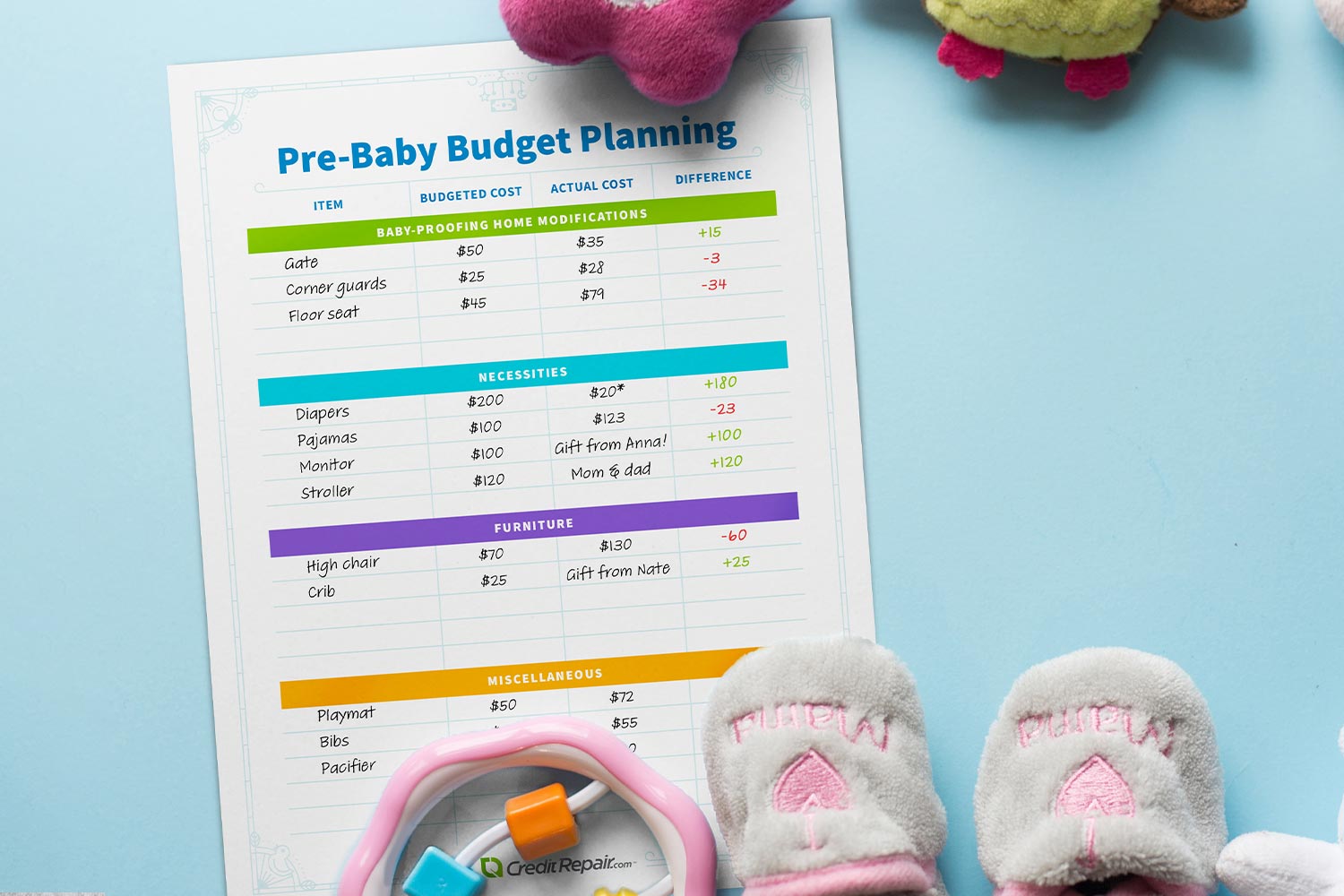

4. Check your emergency fund
Becoming a new parent comes with costs many parents don’t see coming, from possible high medical bills to incidentals. To ensure you’re ready for anything life may throw at you, check your emergency fund before you continue down the path to parenthood to see what kind of shape it’s in—or start one if needed.
Having this emergency fund not only gives you a financial backup plan (more on that later), but it also ensures you won’t have to worry about finances in the event of an emergency. These situations are stressful enough as is, so give your family the peace of mind that an emergency wouldn’t be the end of the world.
5. Prepare a maternity or paternity leave plan
Whether you’re co-parenting or planning to be a single parent, it’s important to know your parental leave plan ahead of time. If you have a partner, discuss how you’ll handle parental leave together. Will one of you stay home? Will you both take time off to care for your new child? It’s helpful to know how much paid leave both of you get, and if you can ask for slightly more depending on your situation and job security.
Under the Family and Medical Leave Act, you must give at least 30 days’ notice when taking family leave, whether for birth and aftercare or after your adoption is finalized. Especially for the latter scenario, it’s important to have an open line of communication with your supervisor and let them know you may need more time off to prepare yourself and your home for their arrival.
Coming up with a plan early not only helps you prepare your child care plan for the first few weeks but also gives you a chance to see what your finances will look like. It’s a good idea to save some extra money for the first few weeks post-arrival, as you’ll likely need to cover a few incidentals.

Planning before baby arrives
You’ve taken the leap and had your adoption application approved, or gotten pregnant—hooray! Now that the arrival of your newest family member is mere months away, here are the steps you should take to prepare your finances (and home) for their arrival.
6. Prepare a post-arrival budget
Now that your family is growing by one, you’ll want to prepare a post-delivery budget to follow. You can adjust the pre-baby budget now that you have more of an idea of what things will cost, with the addition of remaining items to purchase.
Remember that you can choose how strictly to follow a budget—it shouldn’t be something that causes you guilt if you don’t follow it to the letter. A budget is more of a guiding hand to give you an idea of what you can and should be spending, and it could help your financial relationships to think of budgets in this way. Especially when planning for a baby, things can change in a heartbeat, so don’t stress if some budget areas need to be changed or removed.
7. Borrow or buy clothes secondhand
It can be incredibly tempting to splurge on new clothes. As much as you may want to purchase these clothes brand-new, whether for yourself or the new arrival, it’s likely more financially viable to borrow or shop secondhand, especially when you consider how quickly little ones grow.
Check with your friends or family who have had children to see what baby or maternity clothes they’ve saved, or visit your local thrift store to see what secondhand options are available. Not only is this better for the environment, but it’s also better for your budget.
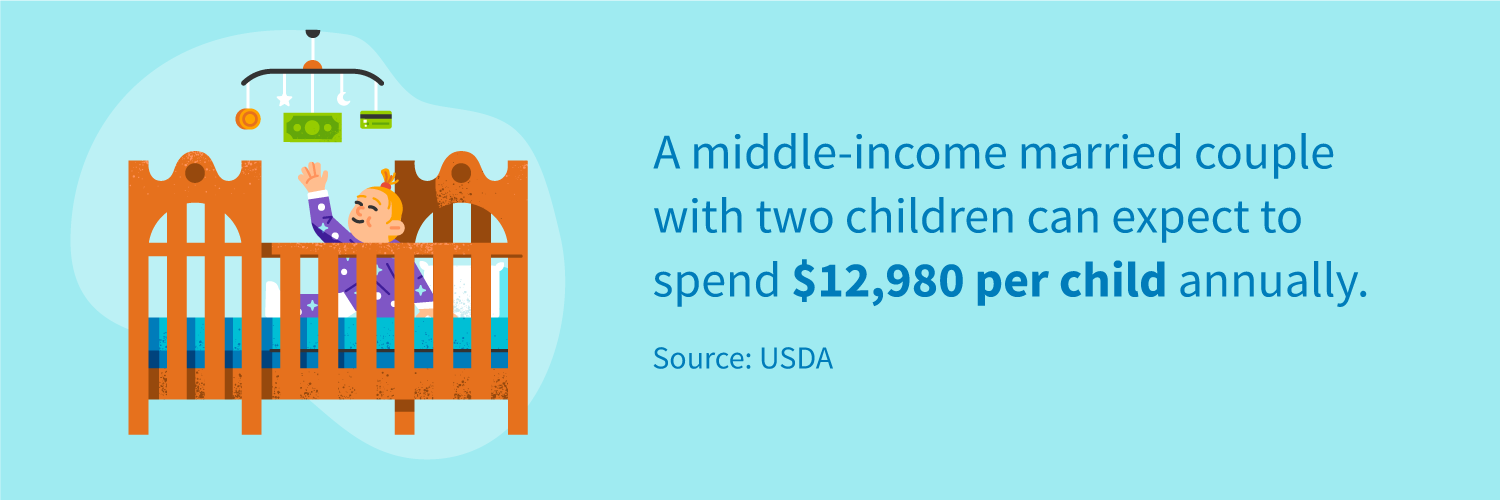
8. Plan for child care
As your bump grows, so does the need for a child care plan. If you’re planning to return to work after your parental leave, it’s vital to have a safe, secure and budget-friendly plan in place for child care.
Whether you’re planning on having a family member take care of them, a designated nanny or a daycare provider, ensure you carefully review all of your options. Though cost is important, you also want to ensure you’re making the best, and most secure, choice for your child.
9. Find an in-network pediatrician
Especially if you’re a first-time parent, you’ll be spending a lot of time at your pediatrician’s office. From first-year shots to the slightest cough, you’ll want to have a reliable, friendly doctor who will understand your baby’s ailments when you don’t. However, you’ll also want to have a pediatrician that’s in your insurance network.
Doctor’s visits can add up, especially if your baby has medical or preexisting conditions, and having health insurance to cover the majority of those costs is something many parents need. Once you’ve gotten that positive pregnancy test or accepted adoption application, ask around for highly recommended pediatricians in your area, or call your insurer and see if they have any recommendations for doctors in your network.
10. Plan your baby shower
A baby shower is a way to welcome your bundle of joy with your loved ones, where friends and family shower the parents-to-be with gifts, well-wishes and celebration. Traditional gifts include diapers, toys, clothing, pacifiers and other items new parents will need for their child.
When planning or helping to plan your baby shower, see if it’s possible to be strategic when asking for gifts. It can be easy to let your loved ones give what they think you need, but try to communicate what you actually need for your child. This could look like creating a registry or asking for monetary donations to their college or savings fund. Keep track of what you receive with our printable baby shower gift tracker so you can easily see who gifted what when it comes time to write thank-you notes from you and your baby.
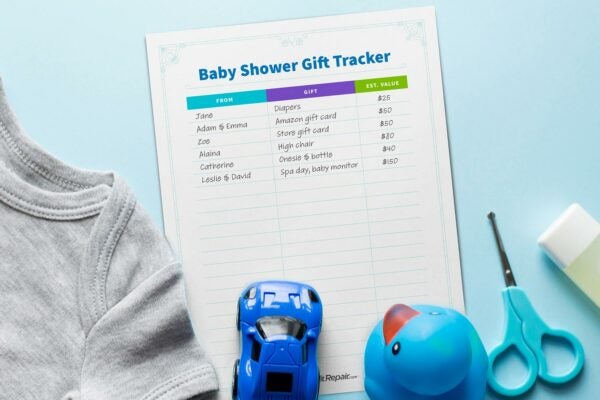

Planning after baby arrives
After you’ve welcomed your bundle of joy into the world, things change—including your finances. Here’s what to plan for after you welcome your baby.
11. Add your baby to your health insurance plan
After your baby arrives, you have 30 days to add them to your health insurance policy. With newborn checkups, vaccines and any other medical attention your baby may need after they’re born, it’s best to do this sooner rather than later.
Just like it was important before you got pregnant or adopted to carefully review your health insurance options, it’s equally important to see what coverage your baby will have with your policy. If they require extra medical coverage because of a preexisting condition, see if it makes sense to adjust your policy for more coverage.
12. Consider disability insurance
Though life insurance is something every parent should consider for their child (more on that later), disability insurance is something that more parents are likely to need. This area of insurance provides coverage in case you’re injured and out of work for several months, and it matches the income you’d miss due to your injury.
This is designed to protect both you in case of an injury and your family in the event of one parent being out of work for an extended period of time. This prevents your family from losing one stream of income, which would otherwise be supplemented by credit cards or burning through your savings.
13. Start a savings account
If you’re financially ready, consider getting a head start on a savings account for your new family member. This can be a 529 college savings account or a regular savings account to set them up for little or no debt.
Starting this fund before your new arrival gets here also means you can ask for donations to that fund instead of traditional baby shower gifts. This ensures your family and friends still show your family love and appreciation, just in a different way.
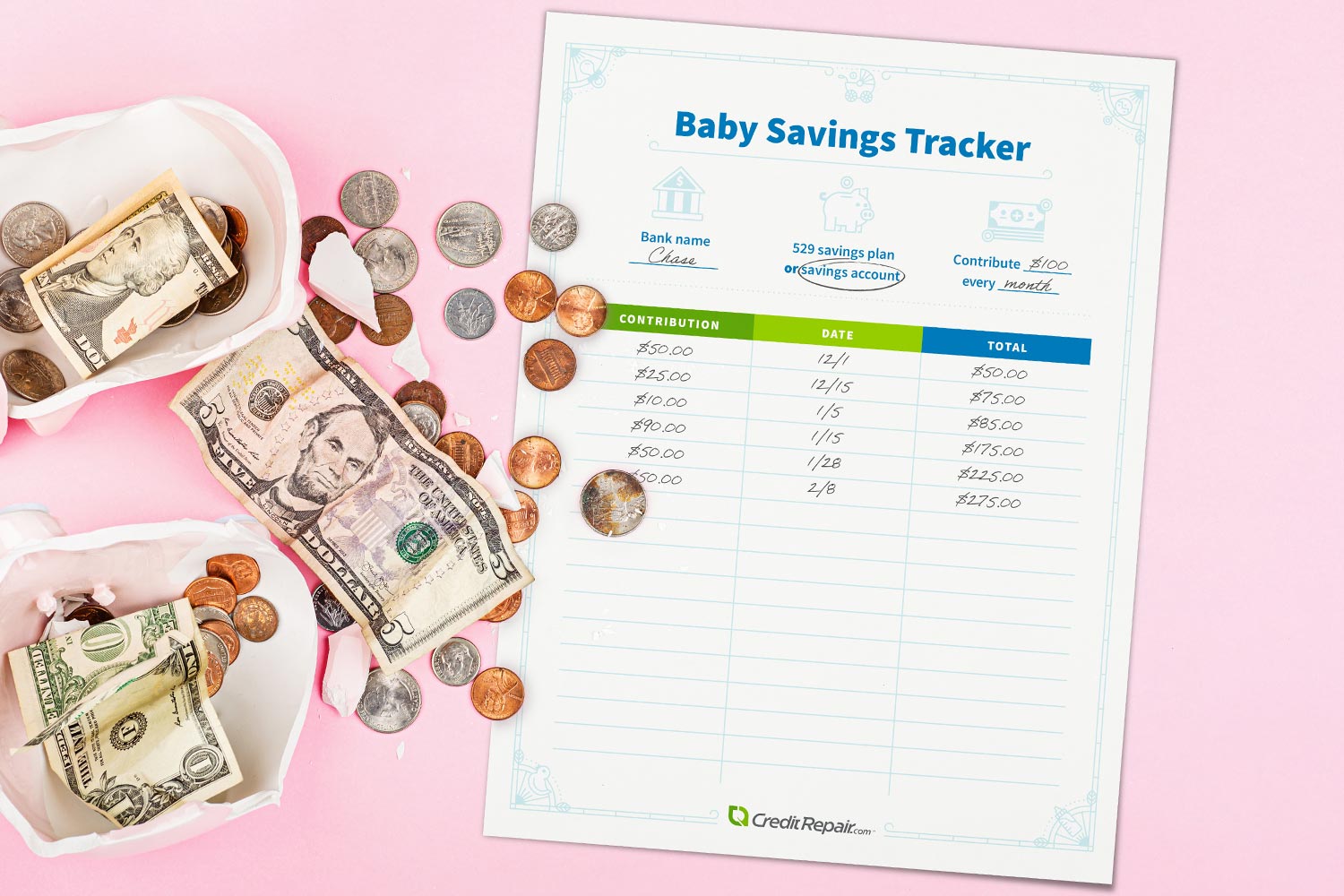

14. Adjust your will and name beneficiaries
If you don’t have one already, one big part of planning includes writing or adjusting your will. Though no one wants to think anything bad could happen to them or their loved ones, it’s important to be prepared. Be sure to include what your child will receive, along with appointing guardianship so that their care isn’t left up to the courts.
If you or your partner already have life insurance, you may want to name your child as a beneficiary on your accounts. The same goes for your 401(k) and IRAs: In your will you should explicitly state when and how your child will be eligible to receive this money.
15. Opt in to dependent care FSA
A dependent care FSA, or flexible spending account, is similar to a health savings account in that it’s a pre-tax account, sponsored by a qualifying employer as a benefit. If you sign up for one, these contributions are automatically drafted from your paycheck into the account. Unlike an HSA, which can be used for any qualifying health expense, a dependent care FSA can be used for child care options.
Since dependent care FSAs are pre-tax, these accounts can lower the cost of eligible child care while lowering your total amount of taxable income—meaning you can help pay for your child’s care while being taxed less. However, keep in mind that these FSA accounts often do not roll over, which means you lose any funds left over at the end of the year.
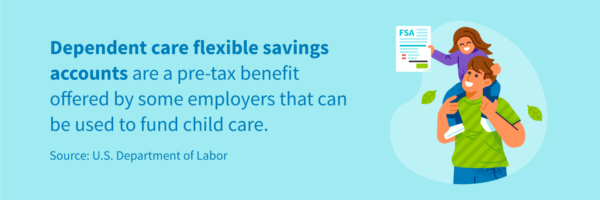
Additional considerations
There’s no one-size-fits-all approach to parenting or planning for a baby. Everyone will have a different method of preparing for and being financially liable for a child, based on their unique circumstances. That said, here are some additional things that parents should keep in mind while planning to start their families.
16. Continue to save for retirement
Once you have a baby, it’s been said that you begin to put yourself and your needs second. While this may be true in terms of sleeping and eating, you should disregard this when it comes to saving for your retirement. It’s still important to save for your child’s college education and savings, but this doesn’t mean you should neglect your own retirement fund.
This can look like automatically drafting money into your 401(k) and entering into matching programs with your employer, as well as having money automatically drafted from your paycheck to your savings.
Preparing for retirement sooner rather than later will help give you a cushion to fall back on, so you can avoid having to finance your retirement with credit cards.
17. Update tax forms for child tax breaks
Tax season can be stressful, especially if this is your first time completing your taxes to account for your children. Luckily, the Child Tax Credit from the IRS allows for parents to save money based on the expenses their children incurred. This is a tax credit, not a tax deductible, meaning that it’s a dollar-for-dollar reduction of your tax liability (or the amount you owe to the IRS).
This is an important area for parents to be aware of, as not including these tax credits means you are literally leaving money on the table that the government is offering you. If you have any questions or concerns, reach out to the IRS or a tax planning professional.
18. Look into life insurance options
It may seem a bit morbid to look into taking out a life insurance policy for your child, but the fact of the matter is this: As a parent, you’re responsible for them and their life. If something happens, you want to be prepared for it and not bear both a financial and emotional burden.
That’s not to say you need to have a life insurance policy picked out along with their first and middle name. This is an aspect of having a baby that many new parents don’t consider, but one that many should. Start thinking about it early so that you can prepare accordingly.
19. Adjust HSA and FSA contributions
HSAs, or health savings accounts, and FSAs, or flexible savings accounts, are pre-tax benefits that allow you to pay for qualified medical expenses for you and your family using pre-tax dollars. As a member of a qualifying employer-sponsored health plan, these contributions can be taken out of each paycheck, and unused funds will usually roll over at the end of the year.
Especially with the health and wellness supplies a newborn requires, it may make financial sense for you to set up an HSA or FSA (or up your contributions) to be deducted from each paycheck. These funds can be used to pay for qualified health-related products and treatments for your baby, including obstetrician or pediatrician fees, breast pumps, formula and more.
20. Have a financial plan B
Life comes at you fast, and you want to be prepared if you have to suddenly switch gears or make a major life decision. Moving, promotions, illness, terminations or other major life events can all happen quickly and without much warning, so having a financial plan B is important.
A plan B could look like having extra savings, having an emergency fund you don’t touch or having emergency credit cards. A backup plan not only helps you protect you and your baby, but it also allows you to be flexible if something unexpected happens.
Having a baby is exciting, uncharted territory for many new and prospective parents. There are many areas of preparing and having a baby that may be stress-inducing, but financially planning for one doesn’t have to be. When you prepare a household budget and ensure that your credit is as healthy as your baby, you’re on track to being financially prepared to expand your family.






